Online Blackjack Rules, Strategy, and More
Originally known by its French name "vingt-et-un," blackjack tables are available at most casinos. While some casinos offer blackjack variants like Vegas Strip or Atlantic City Blackjack, others will likely provide variants that follow the same basic strategy.
Furthermore, blackjack is one of the most popular games in both brick-and-mortar and online casinos right now, and for good reason. The game represents one of the most player-friendly games in the casino in terms of return to player (RTP. Over time, blackjack has become extremely popular due to the simplistic nature of the game and the minimal number of massive swings that players experience when compared to other games.
I'll discuss the basic blackjack strategy when trying to maximize players’ edge over the house, important factors like betting strategies, some intricacies in the game that vary from casino to casino, and different variations of blackjack games that players will encounter.
Online casinos have more variants and live dealer options like American and European Blackjack, which are a click away from the casino apps. Before playing online or in person, read my guide to master the fundamental blackjack game and learn terms like 'split aces'. Learn how and when to draw an additional card, and where you can get the best online casino payouts around!
🏆 Our Top Recommended Casinos

- Generous Welcome Bonus
- Daily Bonuses, Promos, & Spins
- 500+ Casino Games

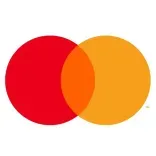

- Optimized Android Mobile App
- Many Classic Slots Options
- Aesthetically Pleasing User Interface

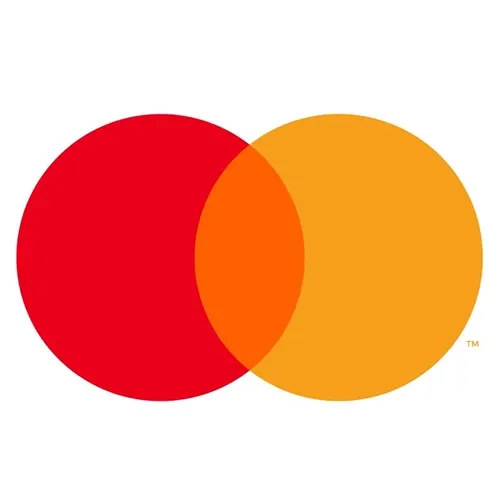
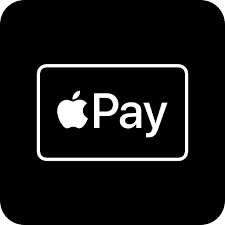
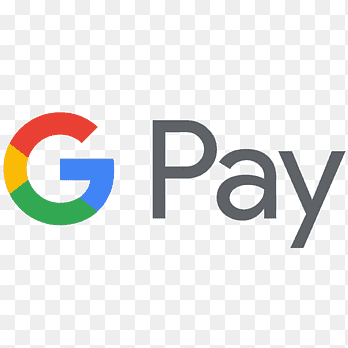
Promo Code

- Generous No Deposit Bonus
- 850+ Casino Games
- Lucrative VIP Program





- Daily Login Rewards
- 500+ Slot Games
- Optimized Mobile Play







- Exciting Daily Missions
- Competitive Gameplay Tournaments
- Lucrative VIP Loyalty Plan



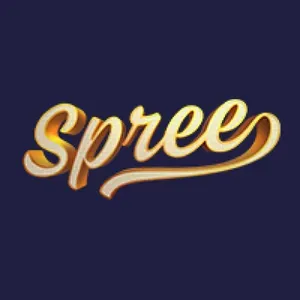
- 2,500+ Casino Games
- Multiple 'SpreePotz' Jackpots
- Spree Exclusives & Live Dealer Titles




Promo Code
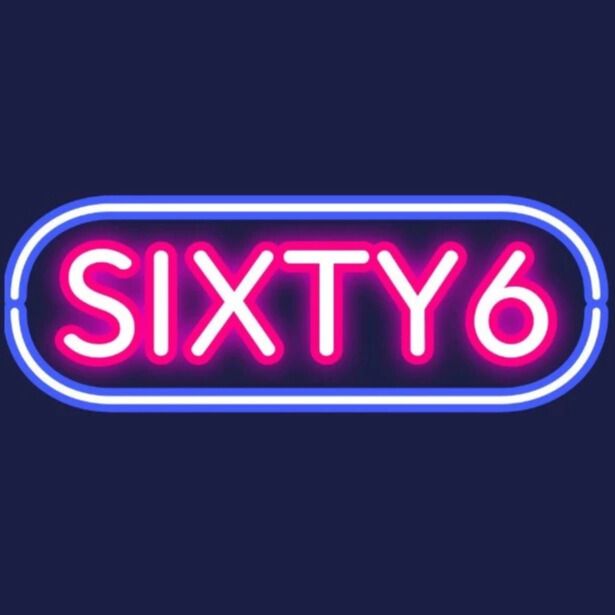
- Available in 40+ States
- Diverse Slot Game Selection
- Entertaining VIP Program




- 700+ Casino Games from Top Studios
- Daily Rewards
- Sign Up with No Deposit Required



Promo Code

- Authentic U.S. Branded Casino
- 1200+ Slots + Live Dealer Games
- FREE Daily Rewards



- User-Friendly Interface + Experience
- Generous Welcome Offer
- Daily Login Rewards





- Generous No Deposit Bonus
- Site-Wide Progressive Jackpots
- Several Ongoing Promotions









- Legal in 35+ U.S. States
- Generous No Deposit Welcome Bonus
- Diverse Selection of Casino Games

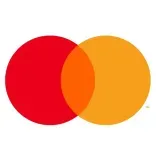


Promo Code

- Exclusive Stake Originals
- Great Selection of Plinko Titles
- Redeem 'Stake Cash' for Real Money Prizes






Promo Code

- Head-to-Head Poker
- Several High Stakes Tournaments
- Ring Games + Easy Cashouts




📜 A Brief History of Blackjack
Dating back to at least the 1600s on many accounts, one of the earliest notes and accounts of blackjack date back to Seville, Spain. The author Miguel de Cervantes, the one who wasn't afraid to gamble himself, wrote about how to count cards playing Spanish 21. In Spanish 21, there are rule variations that don't carry a ten-value card, but they still carry face cards.
Due to its popularity in countries like Russia, England, and France, Americans got their first taste of this card game in the early 1800s when French travelers and colonists brought it with them. Blackjack quickly spread through the bars and unofficial gambling halls of that day. With the rise of legal casino play in Nevada beginning in the 1930s, more Americans flocked to get a hand value or the first two cards to get a natural blackjack.
During World War I, blackjack, played by the British, featured the Pontoon variant, now available at some iGaming sites. As the 50s and 60s went on, Hollywood films and television series like Maverick with James Gardner further solidified the love affair for blackjack tables. With the rise of American online gambling, beginning with Delaware and New Jersey in 2012 and 2013, the love affair for beating the dealer's hand found and continues to find new players to the tune of $65 billion in recent years.
✅ How to Play Blackjack
Original blackjack, like Pontoon, which is available at some online casinos, is one of those shoe games that is played with one or more decks. Unlike poker, blackjack players go against the dealer to get to 21 either with the first two cards, which is where natural blackjack occurs. You automatically win, and the dealer pays you casino chips (or cash if played online). It's important to avoid blackjack mistakes in any other scenario. Otherwise, you strategize about hitting a third card to get as close as possible. However, if your cards go over 21, or if the dealer busts going over 21, you or the dealer immediately lose. But, if the dealer has a blackjack hand, the dealer wins.
The dealer uses a shoe to deal, like baccarat, to the players and themselves. Each player gets two cards face down, where only you know the value. I'll touch upon the value shortly. The dealer deals two cards during the dealer's turn. One dealer card is revealed, known as the up card or the dealer's face-up card, and the other is the dealer's face-down card.
After receiving your first two cards, players can hit or stand. You can hit for a third card through hand signals or decide to stand to see if your hand is higher than the dealer's. The dealer collects a third card under particular conditions. If the dealer's card is a soft 17, meaning the dealer has an ace either with the card face up or face down, and the other card is a six, the dealer stands with conventional rules. Usually, blackjack is played with a single deck, but some live-player blackjack features a double deck.
Jokers are not used, but the wildcard is the ace. Aces count for either eleven or a single point. Tens, jacks, queens, and kings are all counted as tens. Deuces through nine are face-value cards. For casinos that offer blackjack, notably American Blackjack with a 99% RTP, sometimes the minimum bet is under a dollar, so you can quickly jump into the game. Other variants, including high-roller tables and tournaments, have a higher threshold for the initial bet.
After making your original bet and receiving your first two cards, and after the dealer's cards are dealt, you can make several decisions; you can hit for a third card, stand, do nothing if you're satisfied with each hole card, double down on your original bet without hitting, or split aces. Some variants, like Blackjack X-change, offer a side bet where you can surrender lesser-value cards to try to prevent huge losses. Please also keep in mind the dealer's face-down card.
Insurance Bets
A blackjack insurance side bet is where a player can try to prevent massive losses if the dealer's upcard is an ace. In this scenario, if the dealer reveals their hole card that leads to 21, the player loses, but only a half bet, not the whole shebang. But if there is a dealer bust or the dealer's first card isn't an ace, the insurance bet doesn't apply.
While insurance wagers seem like a no-brainer, the house edge goes up dramatically, especially if the dealer takes an additional card and wins. Also, becoming overconfident and making an additional bet might not pan out.
Splitting Hands
Splitting aces is when your initial two cards are aces. The rule of thumb is to split them into two hands so you can hit twice to have two potentially winning hands. Also, you don't have to worry about your hand busting in most scenarios. In fact, if you split and get a ten or a face card, you have blackjack with at least one hand with the option for doubling down with an additional bet. In this scenario, you would receive even money winnings at 1:1.
You can also split hands with other cards of equal value, particularly tens and eights. However, most casinos don't support this because it reduces the house edge. Assuming you can split hands with same-value cards, the basic strategy works the same — breaking them up into two separate playing hands with the same face value.
If you're splitting tens and decide to hit and receive face cards, the hand or both hands will be valued at 20 and in prime position to beat the dealer. But splitting doesn't mean an automatic win because if the dealer has a blackjack hand with the face-up card and a hole card, you still lose.
#️⃣ Blackjack Odds & RTP
Blackjack is a card game with a highly favorable RTP for players. American Blackjack remains a home run because the average RTP begins at 99% with a single-deck game. However, the house edge shoots up for casinos that support multi-table play, which requires more cards or six decks, like live Infinite Blackjack.
With multi-deck blackjack, the number of cards dealt makes it hard for a card counter to keep track of predicting a hand value. It also makes it hard to come up with a sound strategy to hit or stand with so many cards dealt. But, with so many cards dealt, the odds of the dealer losing (referred to as a bust) aren't as high. The only exception for multi-deck gameplay is that natural blackjack hands pay at a 6:5 ratio compared to the traditional 3:2 ratio for a single-deck game.
How to Win Blackjack
The basic strategy is simple to play blackjack. The goal is to have a winning hand that equals 21 or as close as possible without going over 21. The same applies to the dealer. If the dealer goes over 21, it means an automatic loss. If there are multiple players, the one with the highest hand wins; otherwise, you win automatically if the dealer's hand is a bust.
If your initial card's hand value is less than 21, you can hit for a third card, stand pat, or stand pat by increasing your bet, otherwise known as doubling down. If the casino supports it, you can split hands to improve your winning chances using the same basic strategy.
You might have the option to surrender your entire hand, especially if it is a weak one, to prevent losing the entire wager. While insurance wagers are nice, they might cost you more in the long run because if the dealer wins or you win, the insurance wager is wasted. For beginner casinos and those with smaller bankrolls, sticking with variants like American and Classic Blackjack has more favorable RTPs and is simpler to play.
📝 Blackjack Strategy and Terms
Playing blackjack isn't as complicated as playing other tabletop games like poker. Players can hit whenever their turn is, regardless of the hand value. Of course, the more you hit, even once, can result in going bust. One of the ways to determine whether to hit is based on the dealer's face-up card. While you can't see the dealer's face-down card, knowing the face-up card factors heavily on when to hit or stand. If the face-up card is an ace, it might be wise to stand because the dealer's hand value might be between thirteen and twenty.
Likewise, if you have an ace, regardless of the dealer's face-up card, standing makes sense because your hand value might be between thirteen and twenty, increasing your chances of going bust if you hit. It is savvy to hit for an initial hand value that's eight or less because you won't go bust. But, if your initial two cards are only worth nine and the value of the dealer's card face up is six or less, it is also wise to hit so you can build a stronger hand than the dealer's. You might also consider doubling down your hand for a bigger gain.
If the dealer's face-up card is between seven and an ace, and your initial hand value is between 12 and sixteen, you might roll the dice and hit. Unlike the dealer's soft 17 hands, if you have a soft 17, you might roll the dice and hit. Otherwise, if the hand ends in a draw, it becomes a push bet, and nobody wins. If the casino supports splitting eights, splitting them along with aces is a good move because you won't go bust for hitting and doubling down.
The Martingale Strategy
If you're familiar with roulette, you're already in the game with the Martingale strategy for blackjack. Like roulette, after you make your initial bet, if you lose, the Martingale method calls for doubling your next bet to recoup your losses if you win. If you win, you go back to the previous winning bet.
Because of the inherent risk of using the Martingale method to play blackjack, you should have a pretty good budget before using it. You'll also need to ensure the maximum bet limit isn't too low, so consider choosing a high roller casino when using this strategy. If you keep losing, the Martingale method calls for continuing to double bets to recover losses. As you can see, you can quickly go from $20 to $40 bucks to $80 bucks to $160 bucks and higher using the Martingale method.
Even if you use the Martingale Strategy, the fundamental blackjack strategy, or the odds change, it is a gambler's fallacy that using any particular strategy of playing a specific game shapes your wins when you play blackjack.
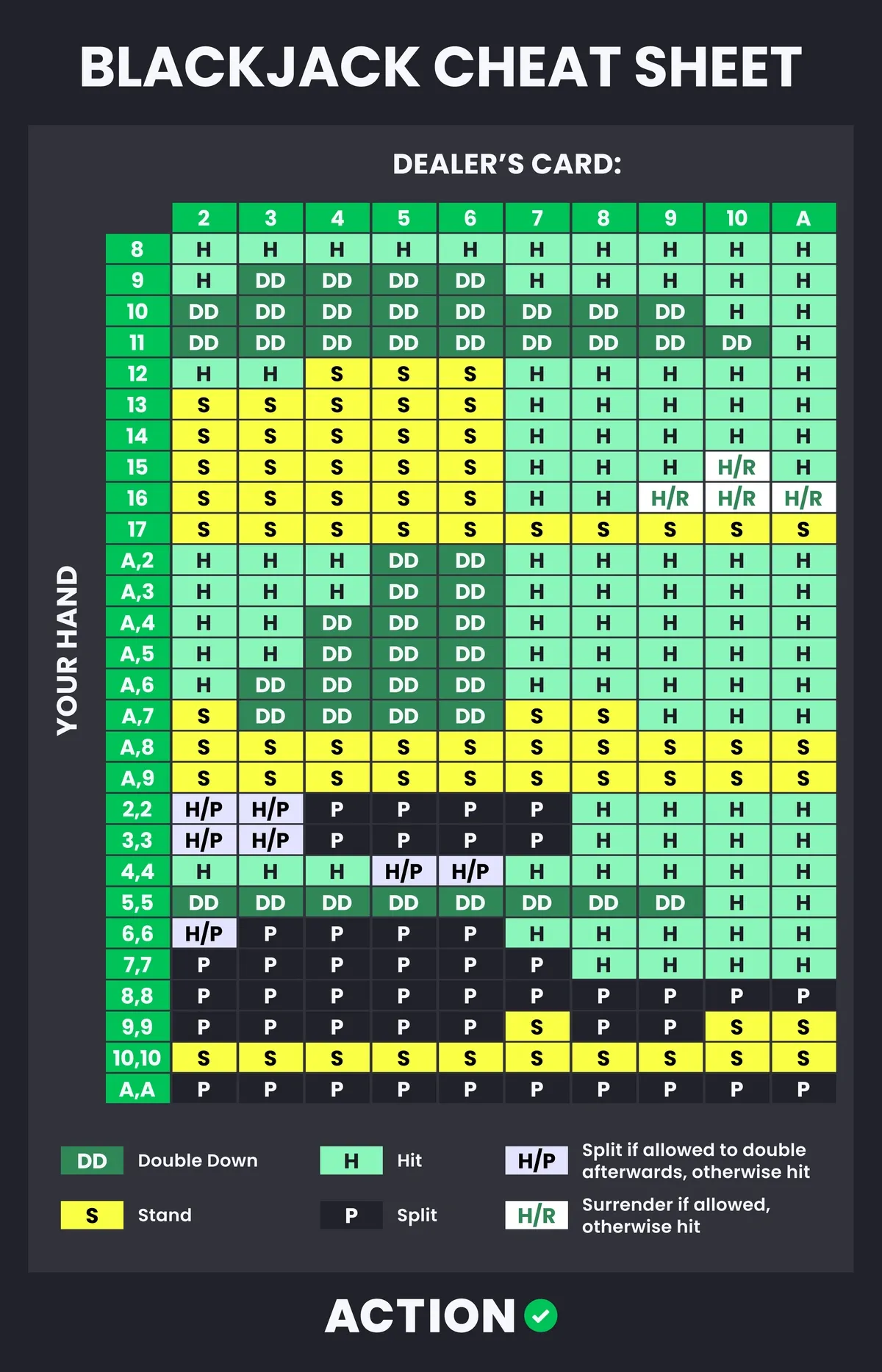
Does Card Counting Really Work?
Let's put it this way. You have pit bosses and other staff carefully watching card games for card counting. Counting cards takes away the house edge and can result in you being forced to forfeit your winnings, being thrown out of the casino permanently, or perhaps getting beaten down. So use card counting at your own risk. This doesn't apply to online blackjack, of course.
Fundamentally, card counting is where players mentally track or have an accomplice tell them which cards, particularly high-value cards like aces and the royalty cards, have been dealt and to whom. Unless you have physical evidence of the dealt cards, such as card marking and others using signals like in Goldfinger, there's no 100% way to know for sure which cards have been dealt and to whom. If you are just going against the blackjack dealer, you know at least the up card, so you're halfway there.
While most players will play blackjack based on an emotional response to the hand they are dealt, there are far more factors to consider. Blackjack is largely considered to be a “solved” game, meaning that all of the decisions that can be brought up during a session of blackjack have been mathematically proven to have a correct response. This set of responses is entitled Basic Strategy.
Charts like these below tell you everything you need to know about optimal blackjack strategy. While hitting on 16 might cause you to bust more often than not, it is, all things equal, the best play you can make.
💯 Five Primary Blackjack Decisions
In its most basic form, there are five primary decisions that players can make when comparing their hand to the dealer’s “up card.” These are hit, stand, double down, split, and surrender.
- Hit: Taking another card from the deck in an effort to improve your hand
- Stand: Not taking another card from the deck to improve your hand
- Double Down: Players double their wager in favorable spots and take only one additional card
- Split: Taking a paired hand and turning it into two individual hands
- Surrender: Only available in certain blackjack formats, this means that players are giving up on their hand as they deem it to be an unfavorable spot
There are times to hit or stand, double down or split, and surrender. Let’s discuss when to do each action.
✅ Strategy With ‘Hard’ Hands
When it comes to blackjack, arguably the most important aspect of the game is acknowledging what the dealer’s up card is. While the cards in your hand are important, they should be played in a manner that relates to what the dealer is showing face-up.
When describing certain numbers in this section, we are not referring to pairs or soft 8s (Ace + Seven). Those will be discussed later on. For example, when we mention that you should hit an 8 at all times, this does not refer to a pair of 4s and only refers to combos like 6/2 and 5/3.
When to Hit in Blackjack
- Any hand worth a value of 8 or below that is unpaired
- Any hand worth a value of 9 when the dealer is showing a 2, 7, 8, 9, 10, or Ace
- Hands worth a value of 10 against another 10 or an Ace
- Hands with a value of 12 against a 2, 3, 7, 8, 9, 10, or an Ace
- Hands with a value between 13 and 14 should hit against all up cards higher than a 7, including Aces
When to Not Hit in Blackjack
- Never hit a hand that is worth 17 or more unless it is a “soft” 17 or 18 against a dealer up card 8 or higher
- Never hit a hand that is over the value of 13 to 16 against a 2, 3, 4, 5, or 6
When to Surrender in Blackjack
- Surrender all 15s and 16s against dealer 10s and Aces (if possible)
- Surrender 16s by choice against dealer 9s
When to Double Down in Blackjack
- Starting hands with a value of 9 when the dealer is showing a 3, 4, 5, or 6
- Starting hands with a value of 10 when the dealer is showing any card except another 10 or an Ace
- All hands with a value of 11 against any dealer up card that is not an Ace
✅ Strategy With ‘Soft’ Hands
Because Aces are so versatile and can be used as both a 1 and an 11 in blackjack, there are a lot of interesting spots that players can be faced with when given a “soft” hand.
Hitting Soft Hands in Blackjack
- Soft 13s and 14s should always hit unless dealer is showing a 5 or 6
- Soft 15s and 16s should always hit unless dealer is showing a 4, 5, or 6
- Soft 17s should always hit against 2s, 7s, 8s, 9s, 10s, and Aces
- Soft 18s should always be hit against 9s, 10s, and Aces
Standing With Soft Hands in Blackjack
- Players should stand with soft 18s against 2s, 7s, and 8s
- Players should stand with all soft 19s unless they want to take the double down option against a 5 or 6
- Players should stand with all soft 20s
Doubling Down Soft Hands in Blackjack
- Soft 13s and 14s should be doubled down against 5s and 6s
- Soft 15s and 16s should be doubled down against 4s, 5s, and 6s
- Soft 17s should be doubled down against 3s, 4s, 5s, and 6s
- Soft 18s should be doubled down against 3s, 4s, 5s, and 6s
✅ Strategy with Paired Hands
Receiving a pair in blackjack is one of the most prominent ways to maximize profit at the tables as long as you understand how to play them properly.
A pair of 2s is the lowest numbered starting hand a player can have that is considered to be a “hard” number. Players should be looking to split their deuces against 2s and 3s if doubling down is permitted after the split by the casino. They should be split against 4s, 5s, 6s, and 7s as well. They should only be hit against 8s, 9s, 10s, and Aces.
- A pair of 3s should be played exactly the same way under the same circumstances as a pair of 2s.
- A pair of 4s looks nice as it is a pair, but there are hardly any splitting opportunities to be had. Two 4s should always be hit unless the dealer is showing a 5 or 6 and players are allowed to double down after the split.
- A pair of 5s should be doubled down on every up card except for a 10 or an Ace. They should absolutely never be split under any circumstances.
- A pair of 6s should be split against a 3, 4, 5, or 6, and should only be split against a 2 if doubling down after the split is allowed. This hand should be hit against 7s, 8s, 9s, 10s, and Aces.
- A pair of 7s should be split against all 2s, 3s, 4s, 5s, 6s, and 7s. It is a hit otherwise.
- A pair of 8s should always be split. It does not matter what the dealer is showing. Two 8s make a 16 which is an awful spot to be in and players should make every attempt to improve upon their hand even if it means pouring more money into an unfavorable situation.
- A pair of 9s should be split against every dealer up card except a 7, 10, or Ace. Players should stand in those situations.
- Two 10s, Jacks, Queens, and Kings should never be split as players are already in excellent position with a made hand. Never split tens.
- Like a pair of 8s, players should ALWAYS split their Aces. This rule applies to every situation as players splitting their aces can put themselves in position to receive two 21s, an unbeatable hand.
🎰 Online Blackjack Betting Strategies
In blackjack, there are many different types of betting strategies that players can deploy in an effort to maximize wins and minimize losses, thus conserving their bankroll. Let’s discuss some of the most popular strategies blackjack players use.
Standard Unit Betting
Unit betting is one of the most popular betting strategies because nothing changes as a player goes through a session of blackjack. Players never deviate from their standard unit. For example, if a player uses a $25 bet size as their standard, they will never bet less or more than that total on a given hand, excluding splits and double downs.
Martingale Strategy
One of the most aggressive betting strategies is the Martingale strategy of betting. This strategy is not only limited to blackjack, but can also be used in other forms of wagering. Martingale requires players to have a massive bankroll as swings can absolutely decimate someone’s entire bankroll in a few minutes if not used properly. Taking from the standard unit betting strategy, players must pick a standard unit size that they want to start each betting round with.
For example, if a player picks $20 as their standard betting unit, this will be the wager they will use after every win. If a player loses, they will then double their bet size. In doing so, players will practically guarantee that they win at least a unit every time they win a hand. Starting with $20, a player will then bet $20 again if they win that first hand and will bet $40 if they lose. If they lose back-to-back hands, it will then be an $80 wager on the third hand.
🎲 Variations of Blackjack
Blackjack has its share of variants. Some casinos, including online casinos, feature fan-favorites Atlantic City and Downtown Vegas Blackjack. While each variant brings something different to the table, they follow the same basic strategy.
European Blackjack
European Blackjack plays like the classic version, but the dealer only deals themselves one card; that's face up. It's only when players make their moves during the playing hand that the dealer draws another card. Sometimes, European Blackjack players can't double down after splitting aces. Also, in most cases, European Blackjack doesn't let players surrender hands during the round.
Blackjack Switch
Blackjack Switch first hit the casino scene in the early 2000s. It quickly became popular because players were dealt two hands instead of two-hole cards. Each hand has an upcard between the two hands so all players can see. Players can switch between the two hands to form one or perhaps two winning hands. As an added thrill, the dealer hits on a soft 17.
Infinite Blackjack
A staple for live-dealer play, Infinite Blackjack, like the title sounds, has no player limit. Like poker, Infinite Blackjack features community cards that players have access to. Infinite Blackjack supports side bets, particularly the 21+3 side gamble, which includes a six-deck game layout. With the 21+3 side wager, in addition to winning blackjack bets, players can win using poker hands like flushes and straights.
Bonus Bet Blackjack
Bonus Bet Blackjack also features side bets while keeping the traditional rules. In addition to the 21+3 side wager, It features the perfect pairs gamble, where you can bet on which cards you're dealt from a pair. It also supports the Lucky Lady bet, where you gamble on your initial hand value, adding up to twenty.
💯 Responsible Gambling
With so many blackjack options available in person or at your fingertips, it's easy to get excited and hone your skills to try to get the winning hand. But before you sit down at the blackjack table or play online, the first rule should be to have a set budget. If you're playing in person, consider not bringing credit cards, as when your budget is gone, so are you. Of course, don't risk the farm. Only safely wager what you can afford to lose.
For online blackjack, our esteemed partners care about your mental health and want you to stay on the straight and arrow. They all have a responsible gaming section where you can voluntarily block yourself out of your account for several days or weeks or permanently through the self-exclusion list. For a more moderate approach, you can set daily playing and loss-limit sections. A safe online casino experience is of the utmost importance to our team at Action Network and the operators we recommend. Still, if more action is necessary to deal with out-of-control spending or other gambling disorders, please get help today with these organizations:
- Gamblers Anonymous: Get help today by visiting https://www.gamblersanonymous.org/ga/
- National Council on Problem Gambling: Help is a call away at 1-800-522-4700
- Gam-Anon: Don't hesitate to get professional help by visiting https://www.gamblersanonymous.org/ga/content/gam-anon-help-family-friends
As a licensing requirement, online casinos must also have a list of problem gambling resources, including ones available in the state they operate in.
📲 Online Blackjack and Casino Resources
Confidence is key to be a successful blackjack player. Take advantage of the following blackjack guides to help boost your play:
- The 5 Best Legal Online Blackjack Sites
- Online Blackjack Glossary
- 10 Online Blackjack Tips
- Common Online Blackjack Mistakes to Avoid
If you'd like to learn more about online gambling, specifically the best online casino brands and the best virtual casino games to play, check out The Best Real Money Online Casinos in the U.S.
- If you're in New Jersey, read our New Jersey Online Casino page.
- Michigan gamblers can check out our Michigan Online Casino page.
- Bettors in Pennsylvania can learn more by reading our Pennsylvania Online Casino page.
- West Virginia gamers can find out more on our West Virginia Online Casino page.
- Connecticut bettors can check out our Connecticut Online Casino review.
- Gamblers in Delaware can read our Delaware Online Casino review.
- If you're in Rhode Island, check out our Rhode Island Online Casino page.
